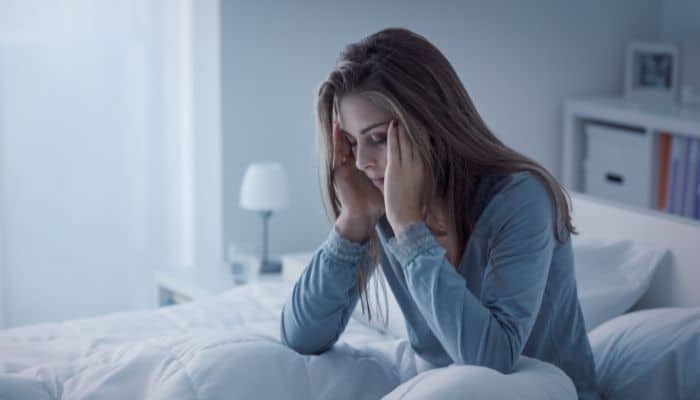Sleep is essential for overall health and wellness. Without sufficient, restful sleep, we experience our mood and focus degrading, slower recovery time for injuries, and a compromised immune system. However, countless individuals experience insomnia, or the inability to fall or stay asleep.
Insomnia can last a single night in the case of acute insomnia or for weeks in the case of chronic. In either scenario, recognizing the common reasons people experience insomnia can help those who have trouble sleeping address the problem for more restful sleep.
Poor Sleep Hygiene
Dr. Peter Hauri developed the concept of sleep hygiene in 1977. It refers to the habits we develop to promote good sleep. Some factors that contribute to sleep hygiene include:
- Having a consistent sleep schedule
- Avoiding excessively long naps
- Developing a nightly routine
- Watching your diet (for example, cutting back on caffeine and not eating heavy meals too close to bedtime)
- Not using electronics right before bed
- Getting sufficient sun exposure and exercise during the day
- Creating a good environment for sleep
When someone struggles with insomnia, it’s helpful to start by examining their daily routine and environment. For example, refreshing one’s bedroom to make it an ideal environment for sleep may make it easier to fall asleep.
Stress and Anxiety
Several things happen in our bodies when we experience stress—a physical response to a stressor—or anxiety—persistent feelings of worry that exist even after removing stressors. Our bodies release the fight-or-flight hormone cortisol, and overproduction can disrupt one’s sleep schedule.
If you think stress or anxiety contributes to your poor sleep, managing it is crucial. Here are a few stress-relieving tools to try:
- Journaling about what worries you
- Doing mindfulness exercises
- Taking part in prayer or meditation
- Practicing deep breathing
- Sharing your troubles with a loved one
If stress and anxiety persist, it may be beneficial to seek professional assistance. Speaking to a therapist or psychiatrist may offer valuable insight into the roots of your anxiety and help you identify tools to help.
Medications
Many medications have a side effect of drowsiness. Because of that, patients often don’t realize they can be one of the reasons people experience insomnia.
If you take regular medication for conditions like depression, high cholesterol, asthma, or Alzheimer’s, talk to your doctor. They can often tell you whether your medication causes insomnia and alter it so you can sleep at night.






